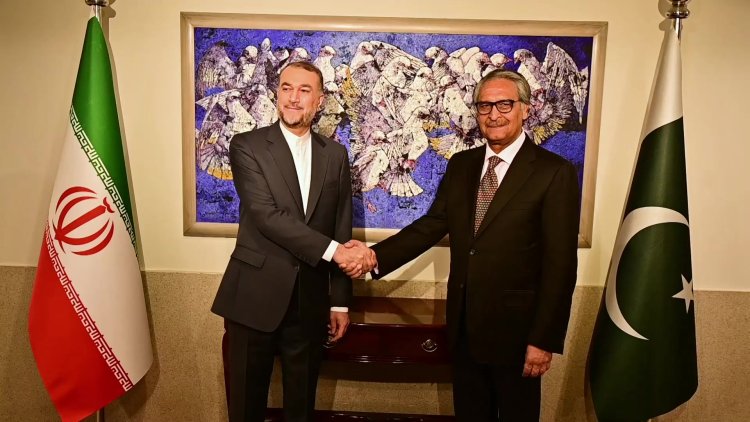Pakistan-Iran Tensions Ease

Pakistan and Iran pledged to improve dialogue and swap liaison officers as both nations sought to ease tensions after deadly cross-border strikes threatened diplomatic relations.
The tit-for-tat raids earlier this month in the porous border region of Balochistan -- split between the two nations -- stoked regional tensions already inflamed by the Israel-Hamas war.
During a visit to Pakistan, Iranian Foreign Minister Hossein Amir-Abdollahian said the hostilities could not be described as a "crisis" because relations had always been strong.
"It was natural that we would manage to overcome this," Amir-Abdollahian told a news conference.
"Through joint cooperation between Islamabad and Tehran, we will not let terrorism endanger relations between us."
Pakistan Foreign Minister Jalil Abbas Jilani told the same briefing that both sides had agreed to strengthen dialogue at all levels, and would speed up a plan to place liaison officers in each other's countries.
"We have managed to bring this situation back to normal in the shortest time," he said.
Tehran carried out strikes against an anti-Iran group in Pakistan on January 16, the same week the nation's military targeted Iraq and Syria.
Two days later, Pakistan responded in kind with a pre-dawn raid on "militant targets" in Iran's Sistan-Baluchistan province, one of the few mainly Sunni Muslim regions in Shiite-dominated Iran.
The two countries, however, last week announced they had decided to de-escalate and allow both ambassadors to return to their posts.
Both foreign ministers insisted that strong long-term relations and respect for each other's borders had ensured a swift outcome.
They would also establish a new "consultative mechanism" at the ministerial level and plan regular meetings to be held in each other's capitals.















